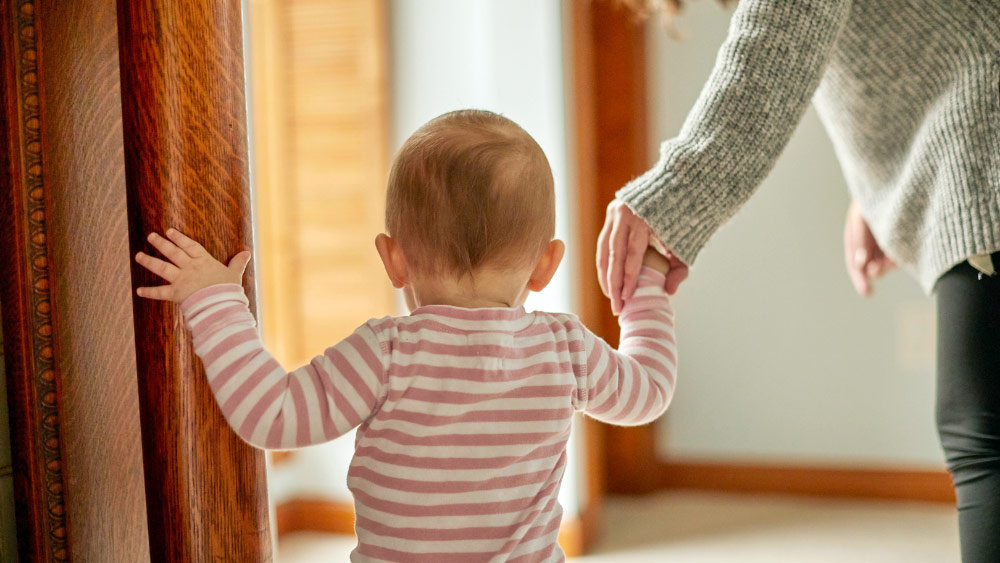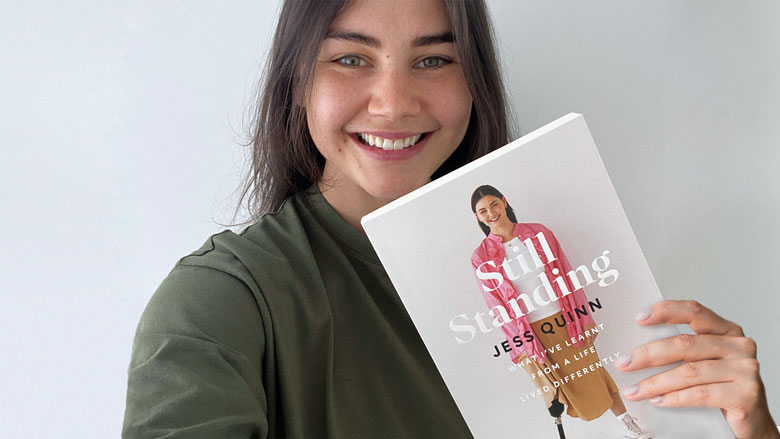I’ve had really bad pain ever since my period started. It got to the point where I had to miss school every month. As an ex-cancer patient, the symptoms were familiar: fatigue, migraines, gut issues – so I chalked up my endometriosis symptoms as side effects of being an amputee and undergoing cancer treatment.
Mum took me to a gynaecologist when I was 15, but there wasn’t a lot they could do. The tests for endometriosis weren’t as thorough back then as they are now. The doctor ended up putting me on the contraceptive pill to manage my periods and the pain. While we still have a long way to go, to fully understand endometriosis, research and available treatments are far better now.
Finally understanding my symptoms
I’ve always had great doctors and naturopath practitioners, so for years I was able to manage the symptoms.
But around two years ago, my pain started getting worse. I'd stopped the contraceptive pill and my symptoms were becoming unbearable. My partner had to ask me if he needed to call an ambulance in the middle of the night. It got to the point where I had to take painkillers a week before my period to help me handle the pain.
At the same time, I was seeing a naturopath nutritionist for my gut healing, as well as a pelvic health physiotherapist for an injury. I'd usually push my pain to the side as per usual, but at this stage, I knew I had to do something about it. I was referred to an endometriosis specialist, and she immediately saw parallels with my symptoms. Endometriosis can sometimes affect fertility, and as someone who wants to start a family at some point in my life, I finally decided to find out what was really going on with my body.
Do I have endometriosis?
Endometriosis affects 1 in 10 in New Zealand. It occurs when cells similar to those in the lining of the uterus (endometrium) grows in other parts of the body, which can cause pain, inflammation and scarring, especially around the time of menstruation.
Endometriosis can be hard to detect and can only be fully diagnosed by a specialist via a laparascopy. If you’re experiencing pain, discomfort or similar symptoms on your period, visit your treating doctor or an endometriosis specialist. For more information about endometriosis and treatment, visit Endometriosis New Zealand.
Finding relief from my diagnosis
To be accurately diagnosed with endometriosis, you need to go through surgery. Sometimes endometriosis can be detected through an internal scan, but mine turned up with nothing. I had no idea what to expect when I prepared to go into surgery – I was very emotional.
After I woke up in the recovery room, my doctor diagnosed me with stage two endometriosis. Thankfully, the doctors told me they were able to remove all of the endometriosis tissue, and there were no complications.
As I fought off the effects of the anaesthetic, I bawled my eyes out. It took me about 15 minutes to get myself together again. I was more relieved than sad. As much as I didn’t want an endometriosis diagnosis, I wanted to make sense of everything I had experienced throughout my life, and to know that there was a reason behind all my suffering.
Everyone’s experiences are different and valid
There’s a lot about endometriosis that I’m currently grappling with in my head. I’m doing lots of research, as well as reading this book, ‘How to Endo’, by Bridget Hustwaite. I love how it’s not by a doctor – it's by a woman who experiences endometriosis and teaches you how to self-advocate if you’re living with the condition too.
This is incredibly important. Since learning about other people’s endometriosis experiences, I’ve heard some difficult stories. Sometimes people are told that their symptoms aren’t real, and that they’re just bring dramatic. But no one living with this kind of pain should ever be silenced, and everyone’s experiences are valid. What we need to understand is that we’re the best advocates for our own bodies, and we’re in control.
Normalising conversations about endometriosis
A lot of people think talking about periods and endometriosis is taboo, but it shouldn’t be. Endometriosis is a chronic condition that currently has no cure, and it’s something that severely affects people’s daily lives. In fact, endometriosis affects 1 in 10 in New Zealand, so it’s not uncommon.
If you have someone in your life with endometriosis, take the time to understand them and the symptoms they’re going through. The best thing you can do for them is to let them know that they’re being heard and seen. That’s an important – and sometimes difficult – conversation you should have. New Zealand has an endometriosis specialist group which can be found here for more information. If your GP isn’t taking your symptoms seriously, it’s important to keep pushing for an investigation, or find someone who will listen.
After my diagnosis, I wasn’t sure if I wanted to be a poster child for endometriosis, since there are so many voices out there that also need to be heard. But following my surgery, I’ve realised that I should do some good with the platform I’ve been given. I can share my own experiences while helping others amplify their own voices – raising awareness and aiding others through their own journeys.







